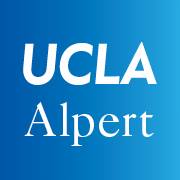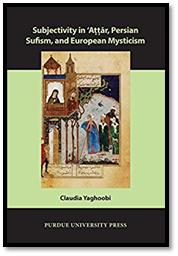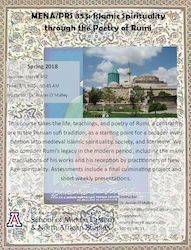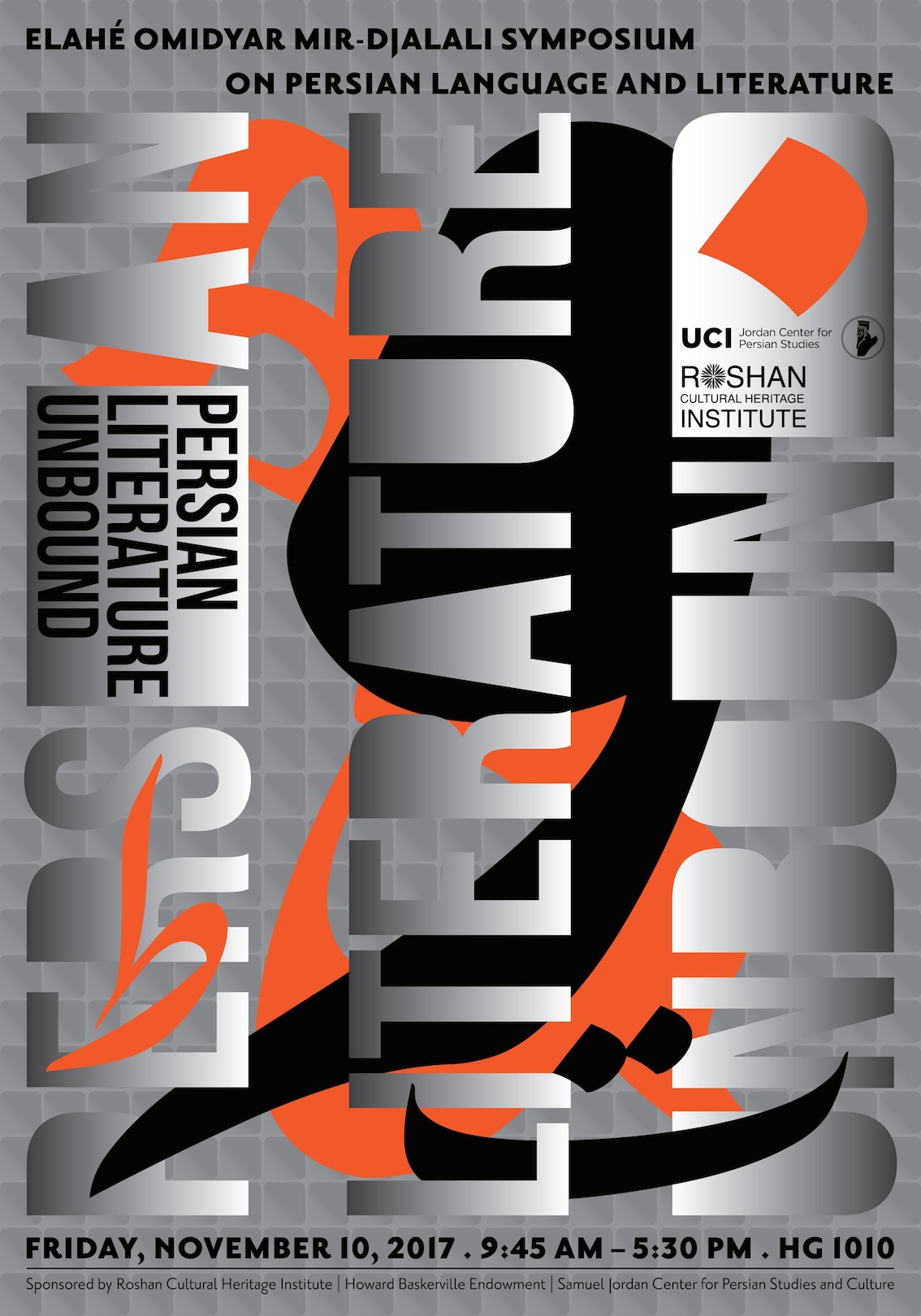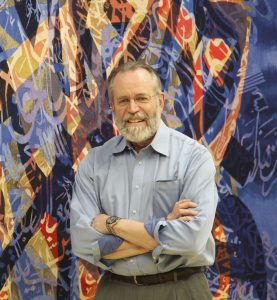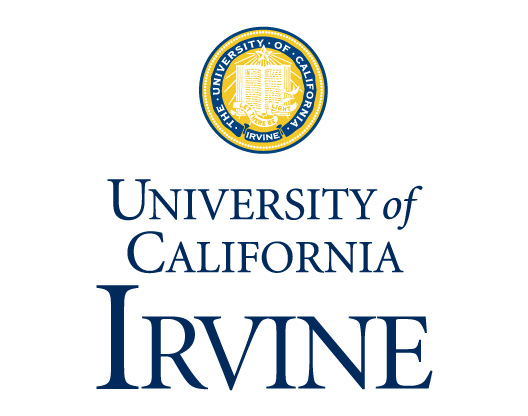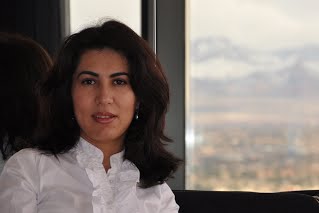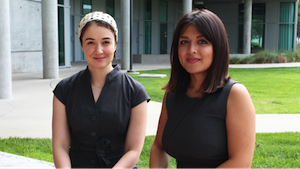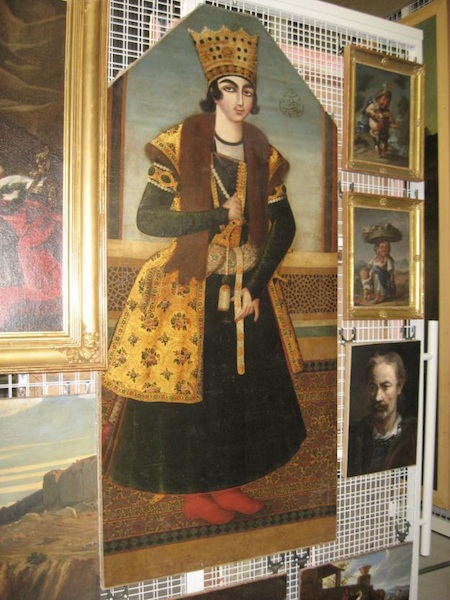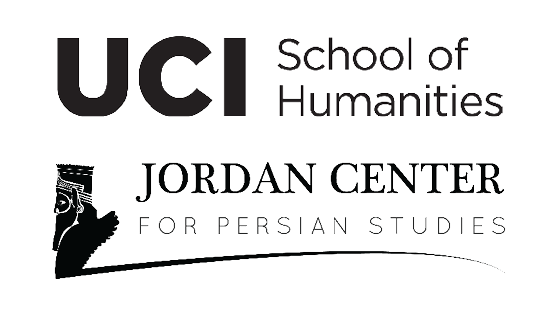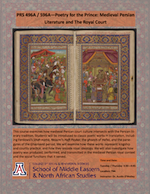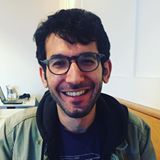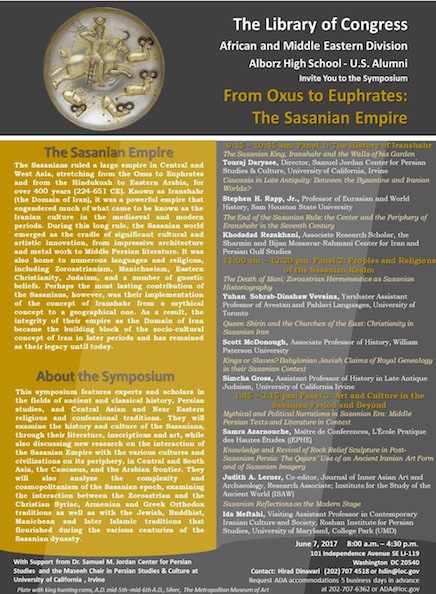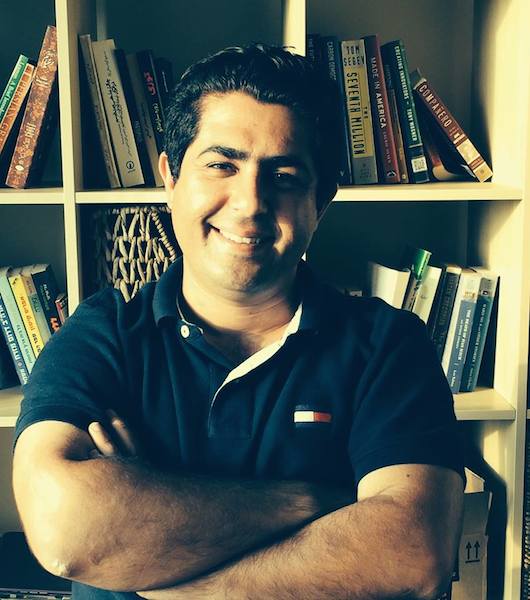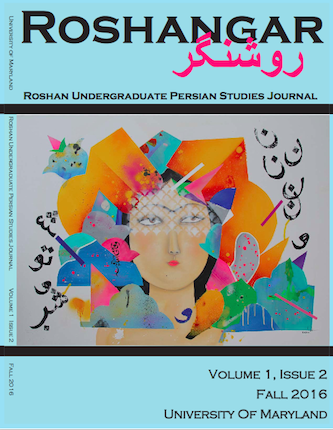Sepideh Raissadat, Ethnomusicology Visiting Artist at the University of Washington School of Music
Roshan Cultural Heritage Institute is pleased to share that The School of Music of the University of Washington has invited Sepideh Raissadat (Roshan Institute Fellow, 2016) as a 2018 Winter Quarter Ethnomusicology Visiting Artist. While in Seattle during this Artist in Residence program, she is teaching Persian music to students with both its theoretical and practical aspects. At the end of her residency, Ms. Raissadat is expected to perform a concert accompanied by her students and by guest artists Sina Khaledi (Santour), Hamin Honari (Tombak) and Ali Sajjadi (Oud). The concert will be free and open to the public.
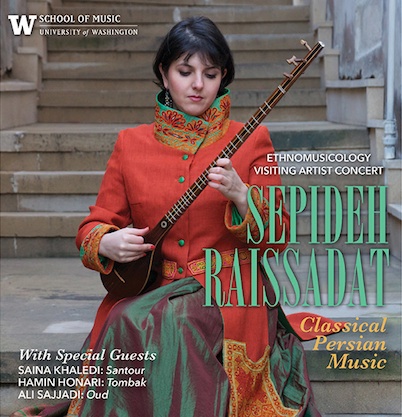
Ms. Raissadat is a Persian classical vocalist and musician, who began her recording career at the age of 18 with an album with Master Parviz Meshkatian (Konj-e Saburi, 1999). She was the first female vocalist to have a solo public performance in Iran after the 1979 revolution (Niavaran concert hall, 1999). As a child, she began studying Persian classical music with the famous Iranian Diva Parissa and later with renowned masters Parviz Meshkatian and Mohammad-Reza Lotfi. She has had numerous performances in Europe and North America and has garnered many invitations by prestigious institutions, including UNESCO, the Vatican and international media such as BBC and RAI.
In 2016, Ms. Raissadat was awarded a Roshan Institute Fellowship for Excellence in Persian Studies in support of her Rameshgari Project, which aims to rehabilitate the nearly forgotten traditional collaborative form of tasnif-composing. Ms. Raissadat obtained a B.A. degree in painting in Iran and holds a B.Mus degree from the University of Bologna and an MA in Ethnomusicology from the University of Toronto. She is currently continuing her doctoral studies in Ethnomusicology at the University of Toronto.
The UW Ethnomusicology’s visiting artist program has been a hallmark of the department for more than 50 years, bringing highly accomplished musicians to the university to work with students in applied music courses and public performances. Students study with artists from Afghanistan, China, India, Ireland, Korea, Puerto Rico, Senegal, Tanzania, and elsewhere.
Read more about Sepideh Raissadat

